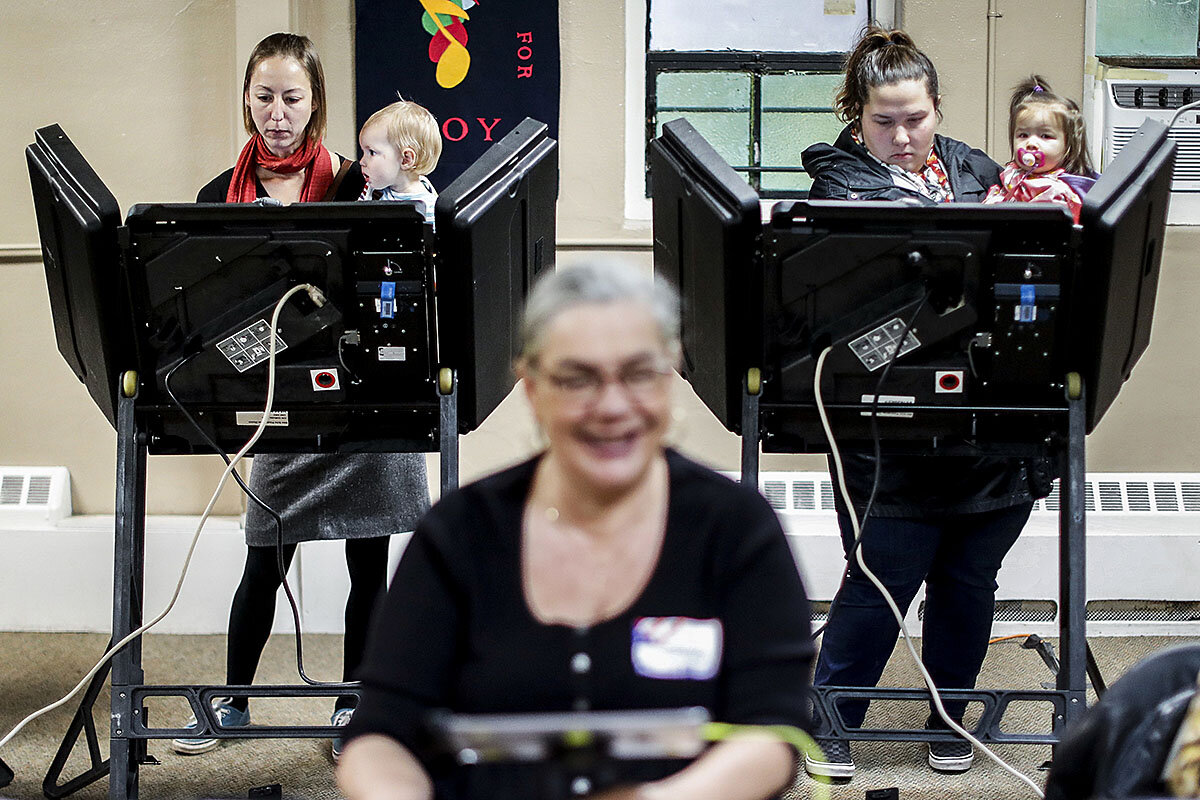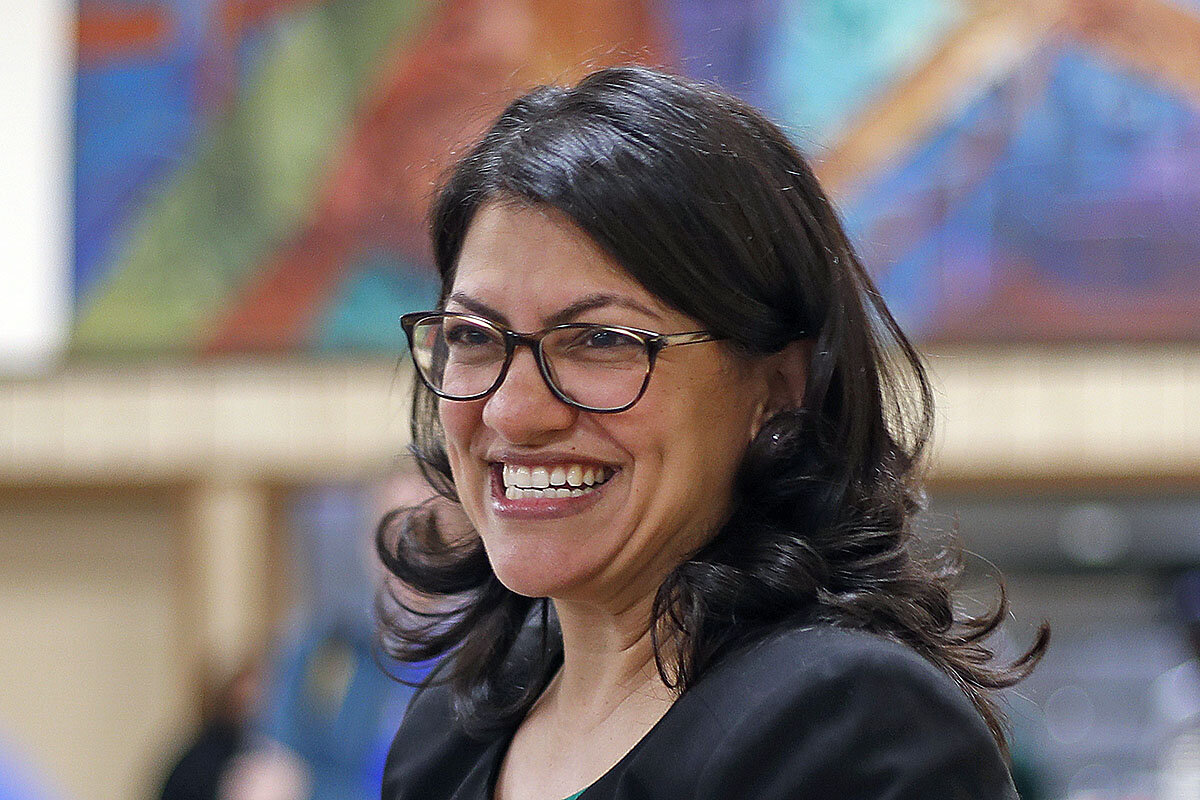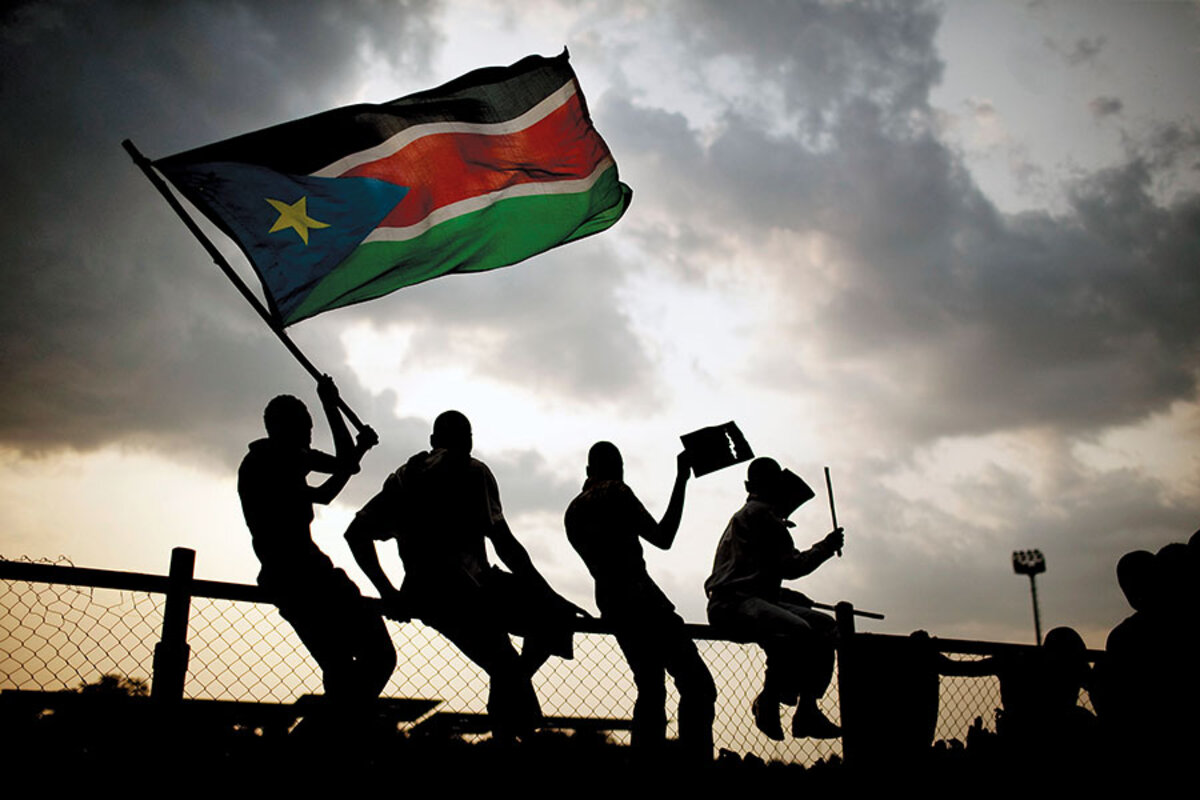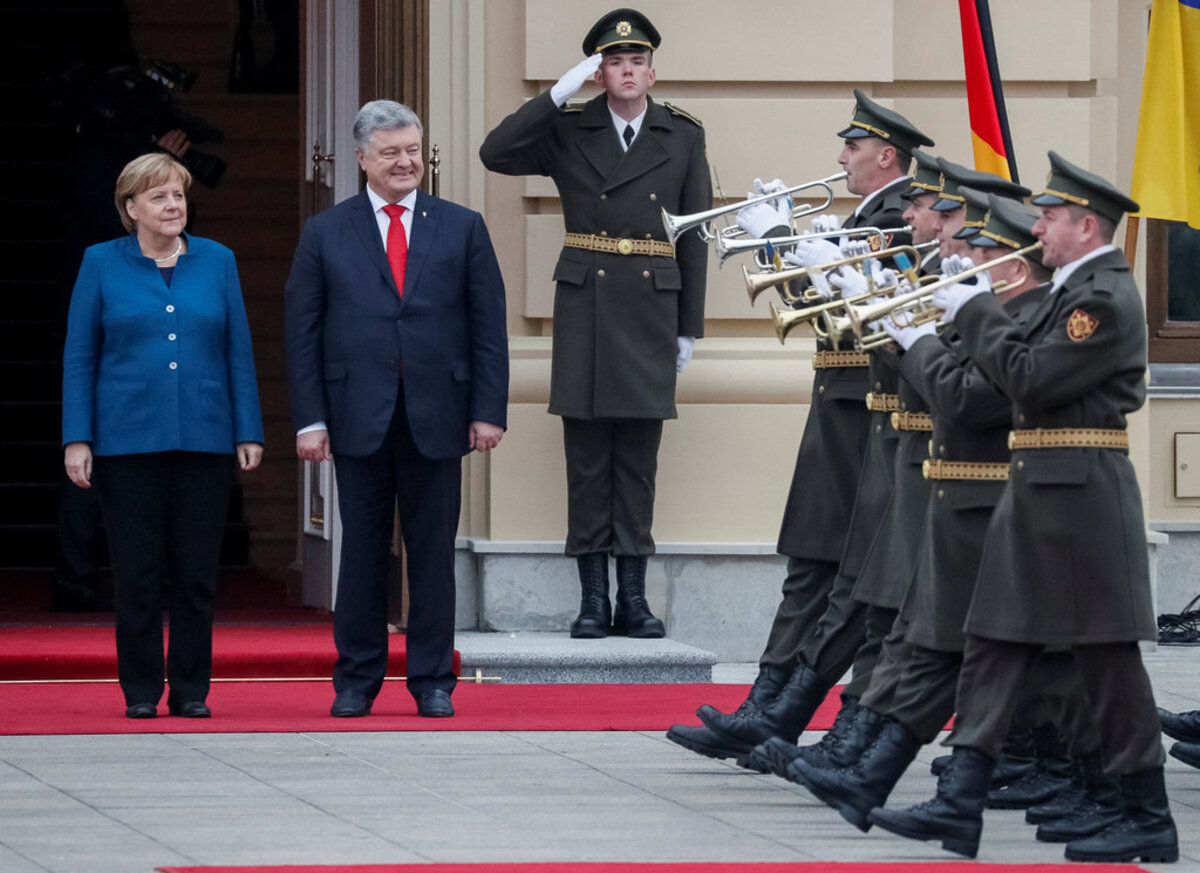Feelings about President Trump – both positive and negative – are fueling unusually intense interest in today’s vote. As many see it, the nation’s values and very identity are on the line.
Monitor Daily Podcast
- Follow us:
- Apple Podcasts
- Spotify
- RSS Feed
- Download
 Laurent Belsie
Laurent Belsie
Church. Church. And now this: a gym attached to a former school. “Which precinct?” the poll worker asks. I can never remember my precinct, so I point to the one with the long line. She chuckles. Of all the places I’ve voted, this is the biggest – so big that it houses two voting lines: Precinct 1 (the busy one) and Precinct 2 (where hardly any voters seem to show up).
There’s something soothing about a polling place, as if after all the frenetic campaign debates and attack ads the nation lets out a collective sigh of relief. Democrats, Republicans, and independents gather here, not to yell, but to cast their ballot. Election officials are helpful, even smiling. I still remember the dignity and kindness of election officials in the small Pennsylvania church where I voted years ago.
By now, the line stretches out the door. A man with a blue paper steps in front of me. He hasn’t voted for so long he’s had to fill out the blue form and have his identity checked. By the time I finish, 80 people have voted and the polls haven’t been open an hour. Is it a strong turnout? “Steady,” the poll worker says. “Precinct 1 always turns out.” I wonder how many elections have taken place within these gymnasium walls and what issues past voters grappled with: Vietnam? Watergate? 9/11? Somehow, the nation got through the vitriol of those years to reach a better place. If Precinct 1 is any indication, there’s reason to believe we will do so again.
Here are our five stories for today, including a look at how Monitor writers are seeing the election across the country.










